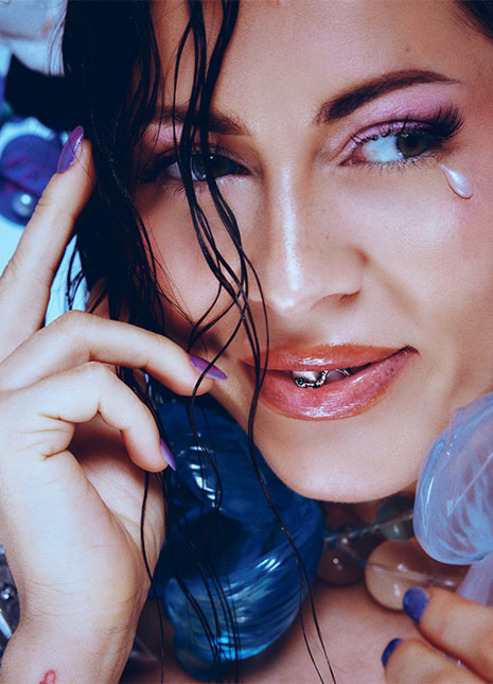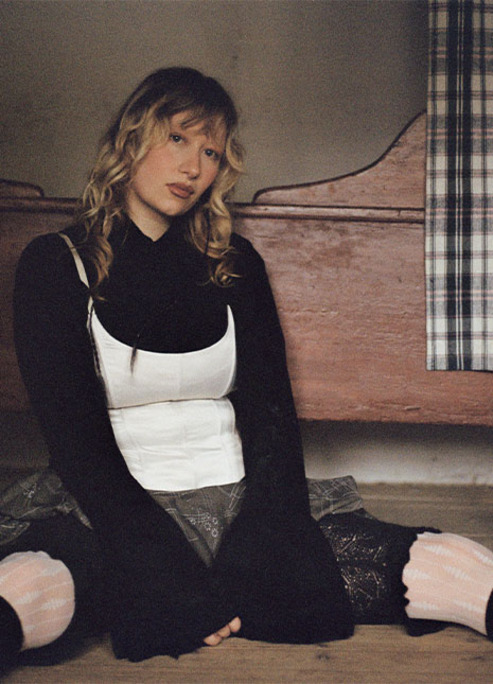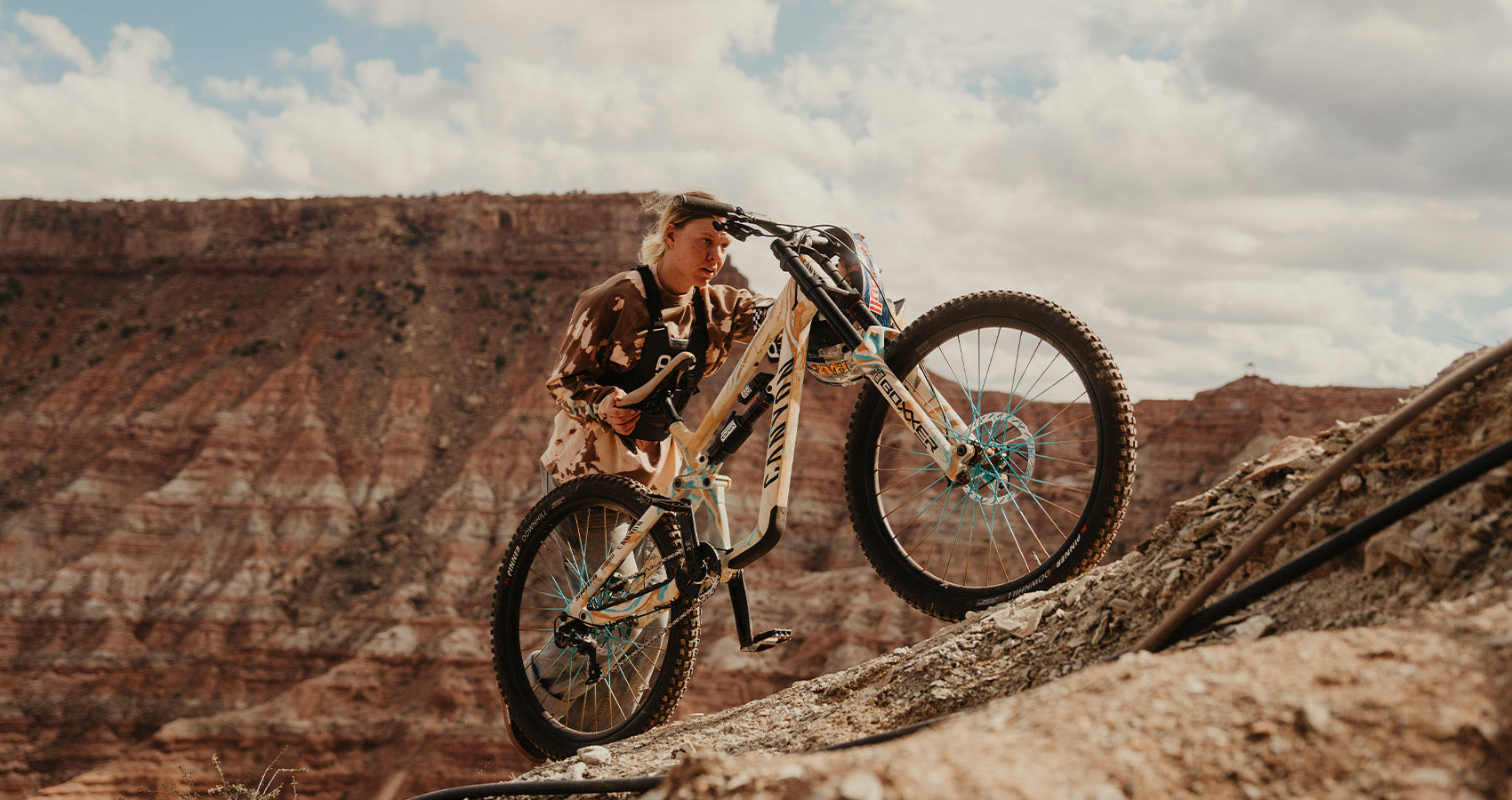
She Broke Her Neck. Then She Ripped Red Bull Rampage
Haz, freeride mountain biker on her epic comeback.
If you’re not already obsessed with Haz, you’re about to be. A year ago, she was literally recovering from a broken neck. Today, she’s back at Red Bull Rampage — freeride mountain biking’s most terrifying, iconic, absolutely-not-for-the-faint-of-heart event — riding cliffs in Utah like she never left. Haz isn’t just one of the most exciting women in freeride right now; she’s rewriting what a comeback looks like. This interview dives into everything: fear, confidence, the mental work no one sees, and what equality in mountain biking really means. Think of it as a conversation with the girl who proves that strength and softness aren’t opposites — they’re her superpower.
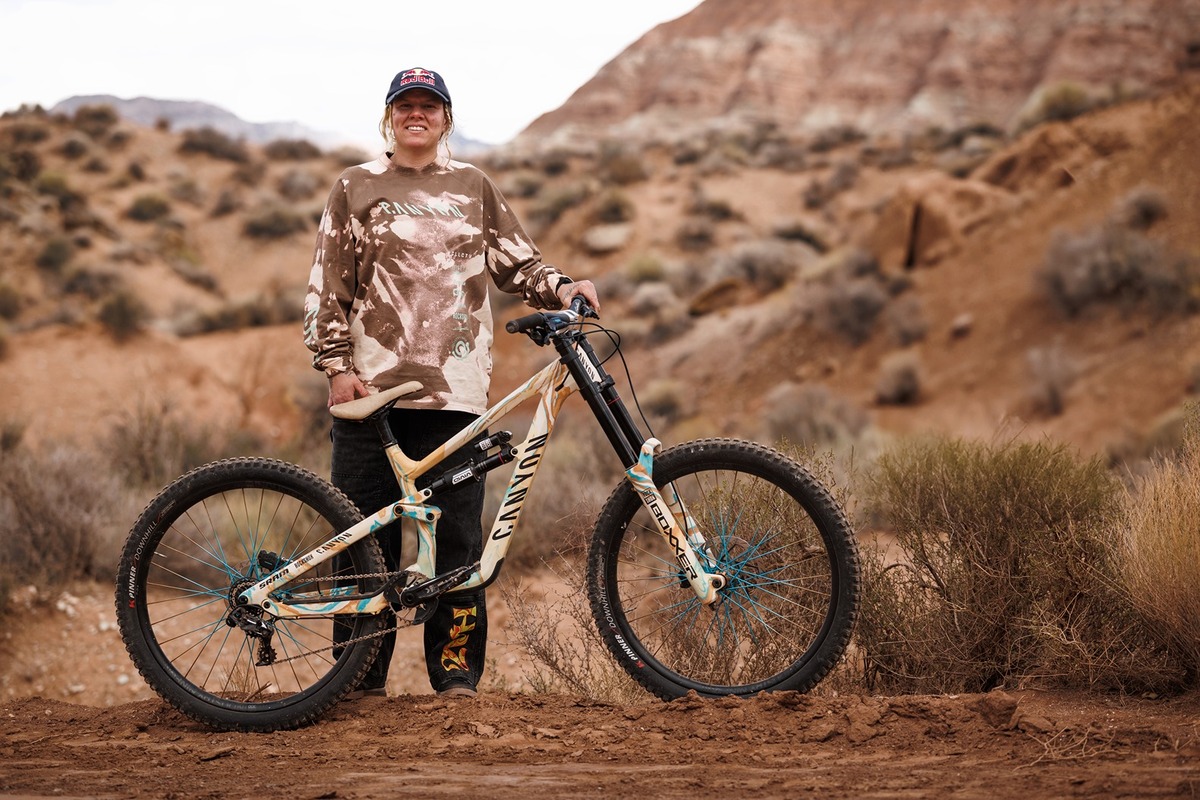
Haz, a year ago, you were recovering from a broken neck — and now you’re back at Red Bull Rampage. When you stood at the top of that Utah cliff again, what was going through your mind? Fear? Gratitude? Determination?
I think the whole season of coming back to competing and riding changed a lot about how I think, and how I deal with fear and mindset in both riding and life. I felt a blend of fear, gratitude, and confidence throughout Rampage. The way I handle all of that—and stay present—is something that has evolved a lot since the injury.
Your story is about more than just recovery — it’s about redefining what’s possible after trauma. What did rebuilding your confidence look like, not just physically, but mentally?
I spent a lot of time with mental coaches and sports psychologists from before the surgery through to after it and throughout the rehab process—something I continued as I got back on the bike. Building confidence came down to trusting my body and feeling safe in it again: lots of meditation around that, and a lot of patience in the beginning with that “I feel like this now, but I know this is only temporary” mindset as I started getting back to events.
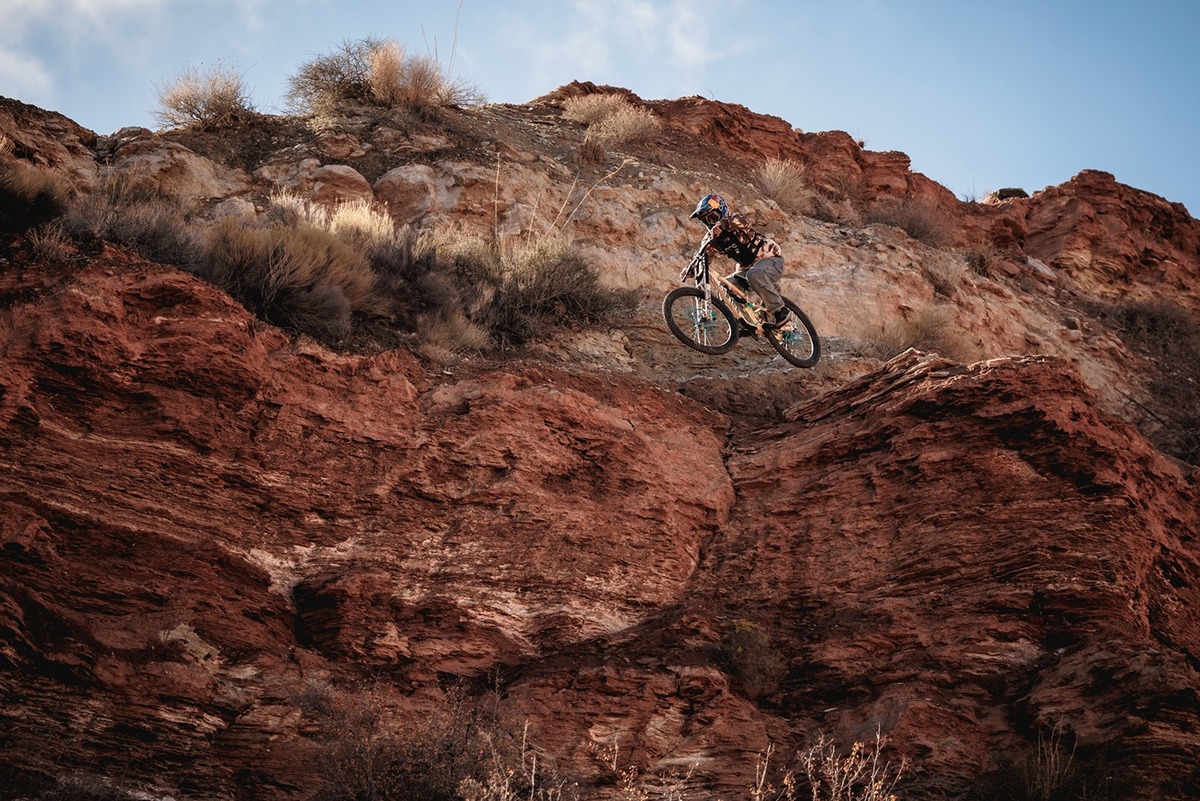
Women are finally getting their place in freeride mountain biking. You were part of the first women’s Crankworx Slopestyle series, and now you’re back at Rampage. How do you see the sport evolving for female riders?
I’ve said it before and I’ll say it over and over again: we just need to be given the same platform, the same event, and the same filming opportunities — and you’ll watch the level and the sport grow rapidly. I see so many younger girls getting into the sport with a different mindset because they can see a direction towards Slopestyle and Rampage as a real pathway.
The mental side of freeriding is brutal. Was there a moment during your comeback when you genuinely questioned if you’d ever get back to this level — and what helped you push past that doubt?
100% — Losing range and mobility in my neck, and knowing how crucial that is to my riding and my ability to crash, was one of the biggest realities, and that came with even more scepticism from doctors. I also questioned whether, if I did come back, I’d be able to get rid of that fear around a neck injury and crashing again.
I tried to just focus on one step at a time — one block of training, one win, my next X-ray, etc. Not worrying or focusing too far ahead, but on what I could do right now and where I needed to be in a month’s time. And then, when I got to that point, reset and focus on the next step.
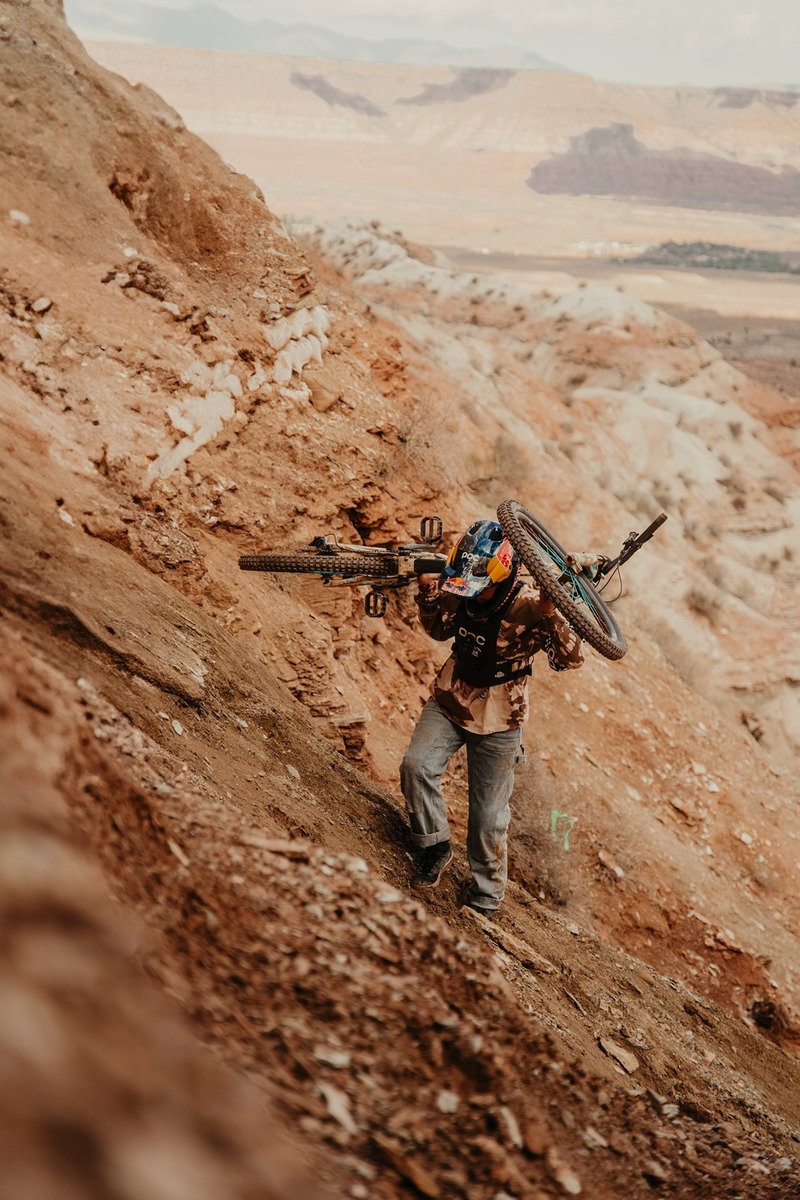
Your injury could have easily ended your career. How has your relationship with risk changed since the crash — has your definition of “sending it” evolved?
I think I’m still working on that—throughout my build back up this season, I tried to take more time in speed checks, roll-ins, etc. I spent more time than I would have in the past before hitting something, and I tried to mentally let that happen, without letting it mean I wasn’t going to hit it or that I was less confident. It’s about taking ego out of something and taking more time, while still having confidence in my riding and ability, regardless of whether I take a bit longer.
At FIZZY, we love talking about power and vulnerability coexisting. What’s been your biggest emotional takeaway from this entire experience — from breaking your neck to carving that new Rampage line?
I think it’s about being able to step away from stressful or emotional moments, be present, and be okay. I’m still working on it, but I feel like I’m learning to be okay in moments—or over longer periods—when I am unhappy, stressed, or not where I want to be.
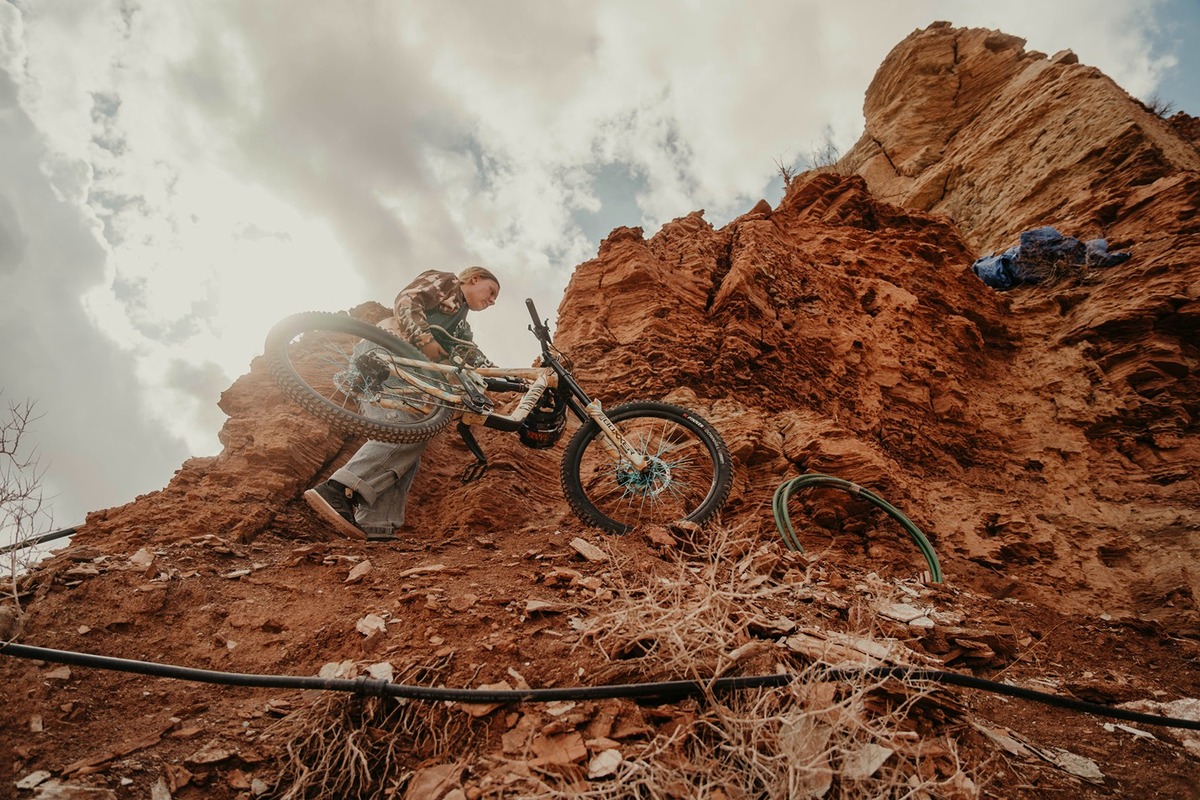
You’ve been a vocal advocate for more visibility and opportunity for women in freeride. What does equality in mountain biking really look like to you — and how close are we to getting there?
I think it’s more about equity and understanding why we are in the position we are, and highlighting women now is still simply an attempt to make up for 20+ years of lost opportunities.
After everything you’ve been through — the injury, the surgery, the comeback — what does success look like for you now? Is it landing a trick, finishing your run, or simply standing on that start line again?
Success is a moving target for me, and I think if you want to be happy in a sport or career, it needs to be. But I’ve landed on the process itself being my success—I love the process of improving, learning, and growing in my riding, my training, my body, and my mindset.
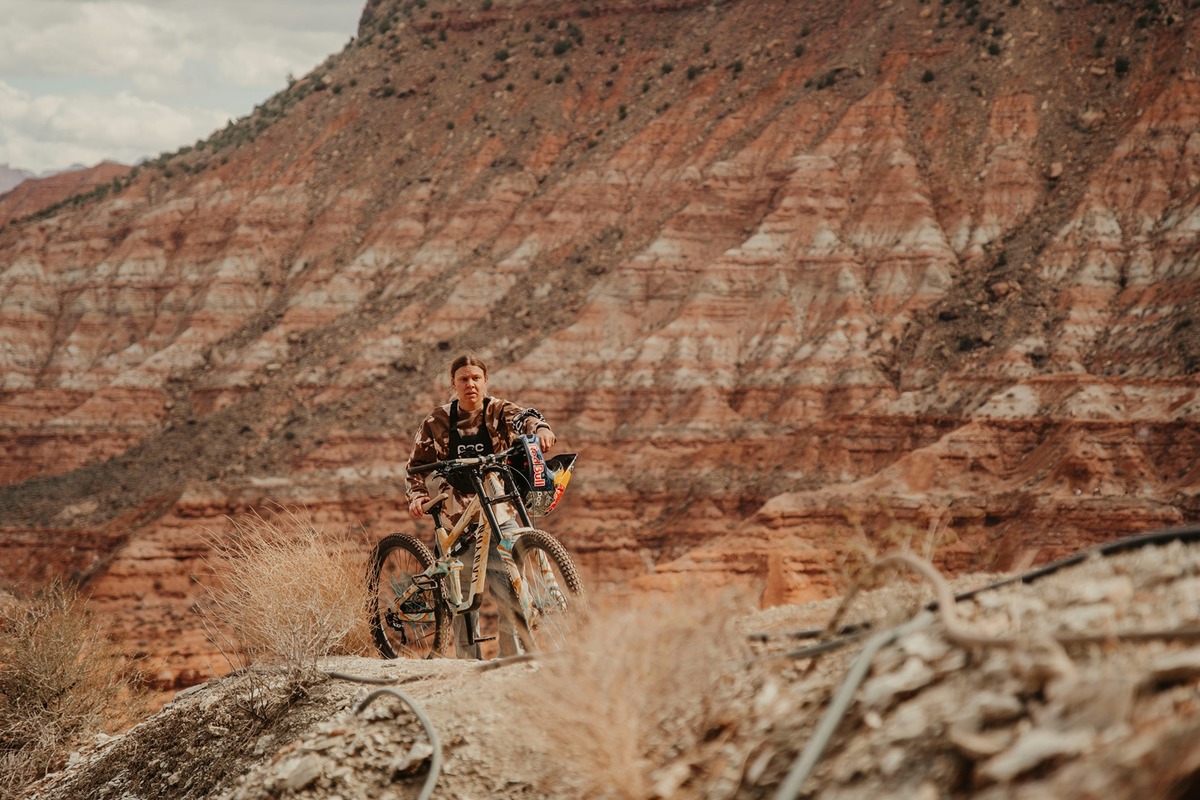
How do you make sure that the bike doesn’t break during these extraordinary jumps?
First off, I'm confident that Canyon really pushes their bikes to the limit during testing. They have an onsite Test Lab at their HQ in Germany to check things like heavy-duty impact force and thousands of repetitive stress tests, and they have test riders who put prototype bikes through brutal conditions. That gives me confidence that my Canyon Torque can handle the biggest hits I can throw at it.
Then there are the finer adjustments I make on-site for specific runs. Getting the suspension setup dialed is up there! And obviously, the more dialed you can be on a feature—doing more run-ins and speed checks—the less chance there is of mistakes like overshoots or casing a jump. So it’s a combination of trust in my equipment and knowing how to get the best out of it.
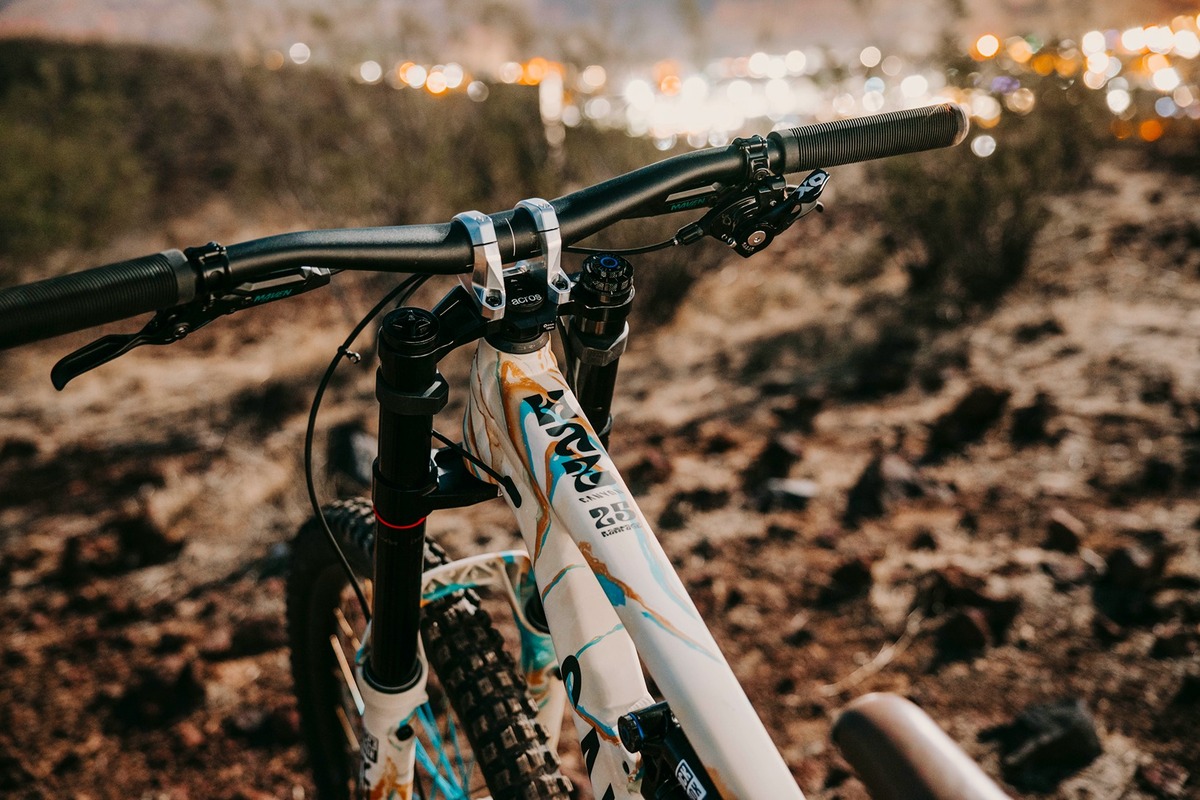
What was it like returning to Red Bull Rampage after your injury?
Rampage was an insane experience! I learned a lot about how I want to approach this event in the future. I felt really stoked with my line choice, and we managed our time really well on the build. It was definitely the best I’ve felt on a bike since my injury, which was amazing.
Having my crash in the last hour of practice the night before finals—and ending my Rampage—was gutting, especially when everything leading up to that had been so perfect. I had a slight case on my entry drop off the ridge, hitting the rock wall and separating my AC. I’ve fought through a lot of pain to ride before, but the morning of finals, I just knew I couldn’t brace myself for a run. It really came down to that, and I don’t regret that decision.
How did it feel to watch the finals after missing your run, and what did you take away from the experience?
Watching the finals I missed out on was insanely sick—the top-to-bottom runs were incredible! It was such a highlight of the field.
Huge thanks to Haz for chatting with FIZZY—and you can follow all her freeride adventures on Instagram @haznationbikes




